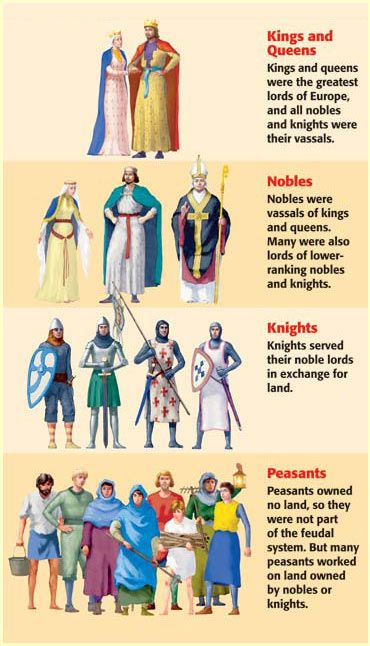Feudalism was introduced by William I in England after his victory over Harold in the Hastings Battle during the 10th century. The system of government known as feudalism was part of the culture for the people who lived during the medieval period in England; it remained unchanged for many centuries.
Brief History that paved the way to a Feudal System in England
Contents
William I was popularly called ‘William the Conqueror’. A foreigner, who forced his own way into the heart of England, was not well-liked or accepted by the people. He desired to exercise his control all over England and rule the country.
However, travelling was very difficult during the 10th and the 11th century. Moreover, as William I was also the Duke of Normandy, he had to spend some time in France to maintain his control in Normandy. William spent a lengthy period of time in London where he built the “Tower of London” for himself. The very first castle in Windsor was also built by him. These castles housed the army or soldiers of William I, and the very act was seen as a potential threat by the English citizens.
The Birth of the Feudal System under King William’s Rule

William pondered over a way that could help him govern the country and thus formed the feudal system. Firstly William divided the country into large counties or lands. They were presented as gifts to the noblemen who had fought for him during the battle. For gaining the land, these noblemen had to swear a solemn oath of loyalty to him and also collect taxes in those areas for the king.
The noblemen were also given the task of providing King William with soldiers at times of danger. Back then, in those ancient times, a sworn oath on the Holy Bible held significance and few humans dared to break such vows or oaths. The noblemen who received such parcels of land were known as Barons, Dukes or Earls. Within the pockets of their land, they held power and were considered as the most important person. In the feudal government, they were acknowledged as ‘Tenants-in-Chief’.
Feudalism in England: The Oath of Loyalty towards the King
The large parts of lands gifted to the dukes or barons were also very difficult to govern by a single person. Therefore the barons divided their lands further and gave them to Norman Knights, especially those who had fought bravely in battles. Each and every knight held a segment of land so that he could control and govern it on behalf of the baron. The Knights also had to swear a loyalty pledge or take an oath in the favour of the duke, baron or earl, collect taxes from the people and provide soldiers when they were required.
When the knights swore an oath to their land barons, it was considered as an oath sworn to the king himself. The baron lords and knights worked together to control the people of England and maintain law and order. The common people were known as peasants, serfs or manors. They were treated unkindly by these noblemen. Those people who revolted were threatened with dire punishments by the Norman soldiers. The lords who failed to control or maintain order were often removed from their prestigious positions. Their main job was to control the English people with the help of Norman knights. Under the feudal government, the knights were known as ‘Sub Tenants’.
These groups, the noblemen, and their knights were formally considered as tenants, which meant that the land did not originally belong to them. Their services to the land were dedicated to their master and owner; King William. The conquered Englishmen and women had to obey them or pay a heavy price for negating the orders of the King.
According to the study of medieval period feudalism in England, William’s rule was dominant and very harsh. He was not the popular choice of the English people. He executed his power and control through the feudal lords and built numerous Norman castles in England. The medieval feudal system or feudalism in England survived for hundreds of years.
Reasons for the slow decline of feudalism in England
- Better transportation facilities opened new trading opportunities to England
- England slowly started to focus more on money based economic growth rather than the land economy
- Labour in England, became scarce and valuable
- The peasants revolted against the feudal system after realising their true worth
- People in towns adopted travel and trading businesses as a means to earn money
- Peasants migrated far away from country lands towards the towns to gain freedom from feudal lords.
Medieval period feudalism in England was majorly dependent on the land economy. However, once the peasants who worked on these lands started revolting and going away from the country, the feudal system lost its hold and power over common man.
